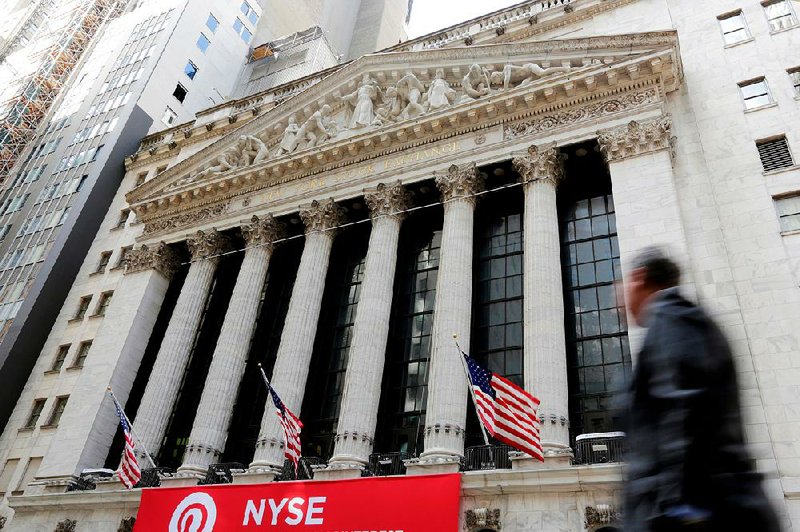NEW YORK -- Companies including banks and technology and health care firms fell Wednesday after U.S. stocks had surged the day before. Oil prices hit a three-year high after President Donald Trump tweeted that the U.S. will launch missiles at targets in Syria.
Other than energy companies, stocks were slightly lower for most of the day. Banks slipped along with interest rates while health care and technology companies gave up some of the big gains they made on Tuesday. Trump said the U.S. will respond to the recent suspected chemical attack, and Saudi Arabia said it intercepted missiles fired by rebels in Yemen. Fighting in the Middle East could restrict oil supplies and push prices higher.
The Federal Reserve released minutes from its meeting in March. Some policymakers felt the central bank may have to increase rates more quickly in response to faster economic growth and rising inflation, and it might have to focus on slowing the economy to keep inflation under control. The market didn't react dramatically to that development, but stock indexes trailed off in the afternoon.
The S&P 500 index fell 14.68 points, or 0.6 percent, to 2,642.19 after it surged 1.7 percent Tuesday. The Dow Jones industrial average slid 218.55 points, or 0.9 percent, to 24,189.45. The Nasdaq composite lost 25.27 points, or 0.4 percent, to 7,069.03. But the Russell 2000 index of smaller-company stocks rose 3.36 points, or 0.2 percent, to 1,546.70, and most of the stocks on the New York Stock Exchange finished higher.
Simona Mocuta, senior economist for State Street Global Advisors, said it's a challenge for investors to respond to events such as possible strikes in Syria because it's not clear what the outcomes will be.
"There is so much uncertainty about the geopolitics that it's hard for the market even to price on a day-to-day basis," she said.
Facebook stock continued to rise as Chief Executive Officer Mark Zuckerberg testified before Congress for a second day. The stock surged Tuesday afternoon at the beginning of Zuckerberg's testimony. It rose 0.8 percent to $166.32 Wednesday after a jump of 4.5 percent Tuesday, its biggest gain in two years.
Daniel Ives, head of technology research for GBH Insights, said Facebook rallied for two reasons. One is that Zuckerberg did well in his testimony after investors had their doubts about how he would perform on Capitol Hill. The other is that Wall Street felt many members of Congress weren't very tough on Facebook because they don't grasp some of the relevant issues. As a result, investors grew less worried that the government will crack down on Facebook and other technology companies.
Facebook's stock is still down 10 percent since the Cambridge Analytica privacy scandal broke in mid-March.
Energy companies rose as benchmark U.S. crude climbed 2 percent to $66.82 a barrel in New York. Brent crude, used to price international oils, gained 1.4 percent to $72.06 a barrel in London. Oil prices jumped more than 3 percent Tuesday as investors got more optimistic about a possible resolution to the U.S.-China trade spat.
The yield on the 10-year Treasury note fell to 2.78 percent from 2.80 percent. That put pressure on banks. When bond yields fall, it forces interest rates on mortgages and other kinds of loans lower, meaning lower profits for banks. JPMorgan Chase fell 1.7 percent to $110.62 and Bank of America declined 1.9 percent to $29.90.
Business on 04/12/2018
